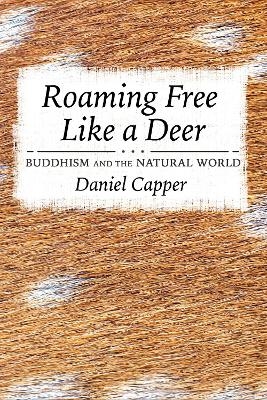
Roaming Free Like a Deer
Buddhism and the Natural World
Seiten
2022
Cornell University Press (Verlag)
978-1-5017-5957-4 (ISBN)
Cornell University Press (Verlag)
978-1-5017-5957-4 (ISBN)
By exploring lived ecological experiences across seven Buddhist worlds from ancient India to the contemporary West, Roaming Free Like a Deer provides a comprehensive, critical, and innovative examination of the theories, practices, and real-world results of Buddhist environmental ethics. Daniel Capper clarifies crucial contours of Buddhist vegetarianism or meat eating, nature mysticism, and cultural speculations about spirituality in nonhuman animals.
Buddhist environmental ethics often are touted as useful weapons in the fight against climate change. However, two formidable but often overlooked problems with this perspective exist. First, much of the literature on Buddhist environmental ethics uncritically embraces Buddhist ideals without examining the real-world impacts of those ideals, thereby sometimes ignoring difficulties in terms of practical applications. Moreover, for some understandable but still troublesome reasons, Buddhists from different schools follow their own environmental ideals without conversing with other Buddhists, thereby minimizing the abilities of Buddhists to act in concert on issues such as climate change that demand coordinated large-scale human responses.
With its accessible style and personhood ethics orientation, Roaming Free Like a Deer should appeal to anyone who is concerned with how human beings interact with the nonhuman environment.
Buddhist environmental ethics often are touted as useful weapons in the fight against climate change. However, two formidable but often overlooked problems with this perspective exist. First, much of the literature on Buddhist environmental ethics uncritically embraces Buddhist ideals without examining the real-world impacts of those ideals, thereby sometimes ignoring difficulties in terms of practical applications. Moreover, for some understandable but still troublesome reasons, Buddhists from different schools follow their own environmental ideals without conversing with other Buddhists, thereby minimizing the abilities of Buddhists to act in concert on issues such as climate change that demand coordinated large-scale human responses.
With its accessible style and personhood ethics orientation, Roaming Free Like a Deer should appeal to anyone who is concerned with how human beings interact with the nonhuman environment.
Daniel Capper is Professor at the University of Southern Mississippi. He is the author of Learning Love from a Tiger.
Introduction
1. Some Methods in Buddhist Environmental Ethics
2. The Buddha's Nature
3. The Clever Bee of Sri Lanka
4. Beautiful Thai Buffaloes
5. Eating the Enlightened Plants of China
6. Japanese Water Buddhas
7. Releasing Animals in Tibet
8. Natural Persons in the West
Conclusion
| Erscheinungsdatum | 14.02.2022 |
|---|---|
| Zusatzinfo | 9 Halftones, black and white |
| Verlagsort | Ithaca |
| Sprache | englisch |
| Maße | 152 x 229 mm |
| Gewicht | 907 g |
| Themenwelt | Geisteswissenschaften ► Philosophie ► Ethik |
| Geisteswissenschaften ► Religion / Theologie ► Buddhismus | |
| Naturwissenschaften ► Biologie ► Ökologie / Naturschutz | |
| ISBN-10 | 1-5017-5957-4 / 1501759574 |
| ISBN-13 | 978-1-5017-5957-4 / 9781501759574 |
| Zustand | Neuware |
| Haben Sie eine Frage zum Produkt? |
Mehr entdecken
aus dem Bereich
aus dem Bereich
unsere kollektive Verantwortung
Buch | Hardcover (2023)
wbg Theiss in Wissenschaftliche Buchgesellschaft (WBG) (Verlag)
CHF 46,90


